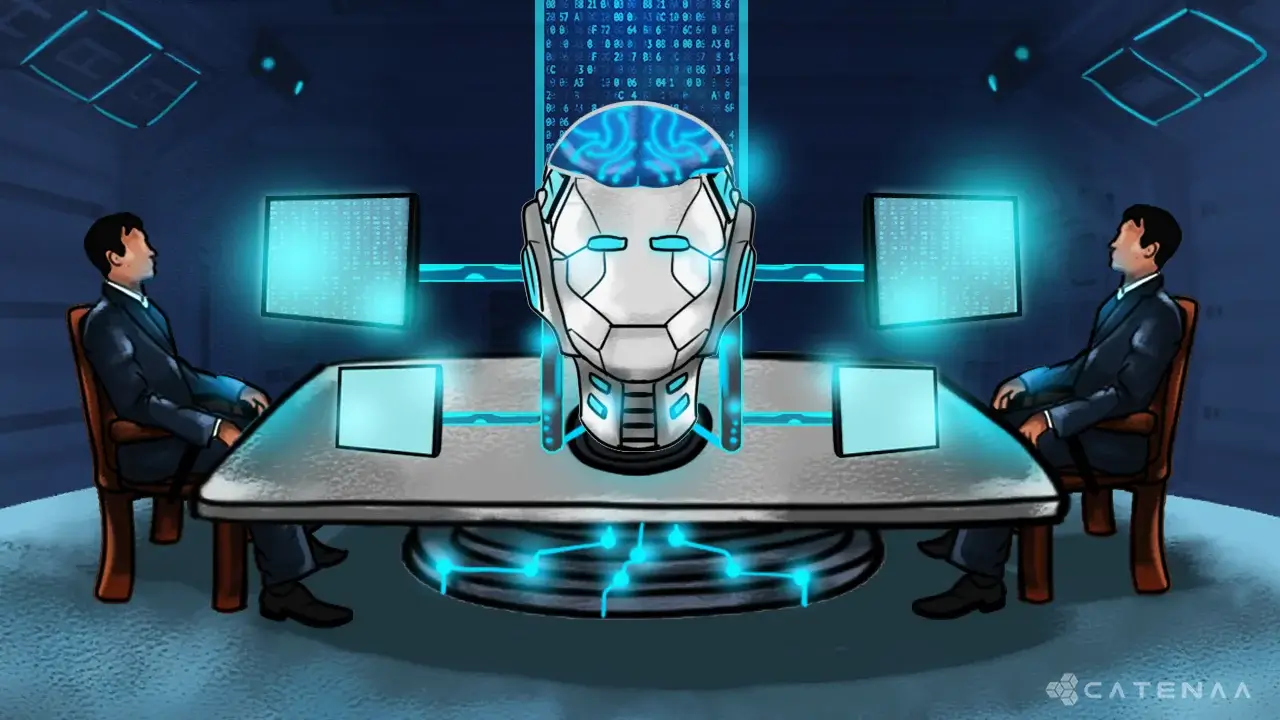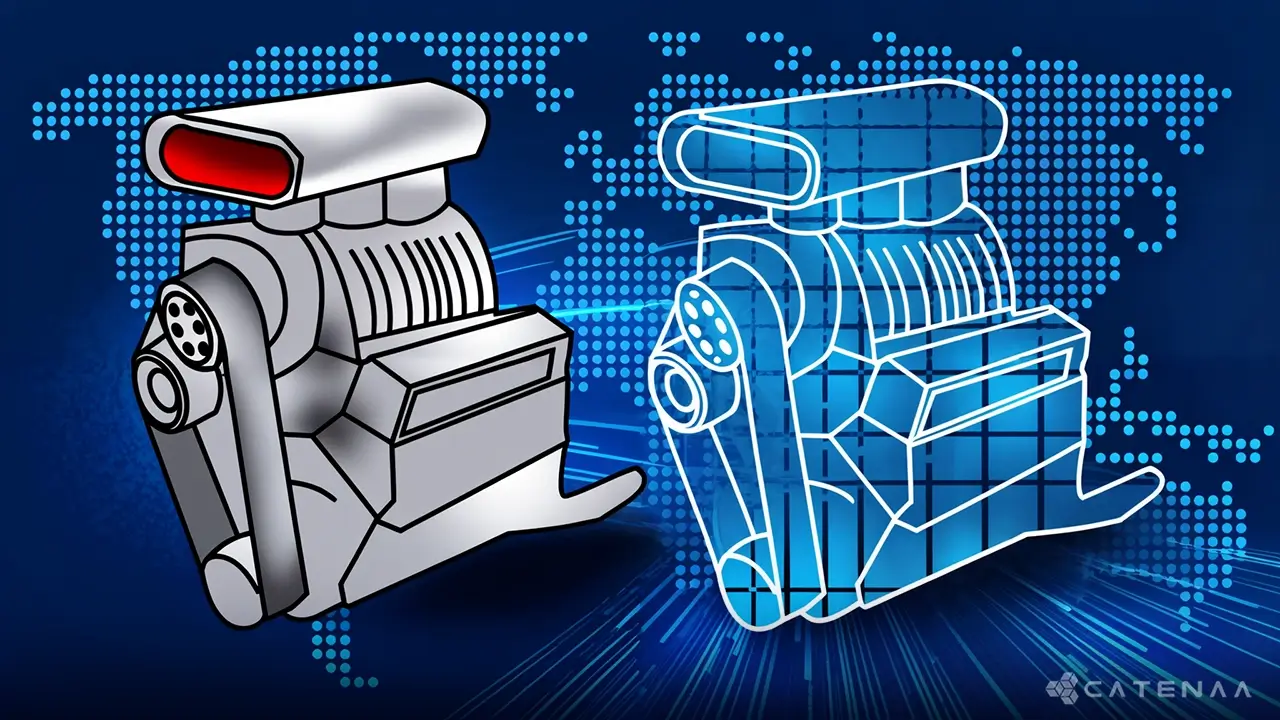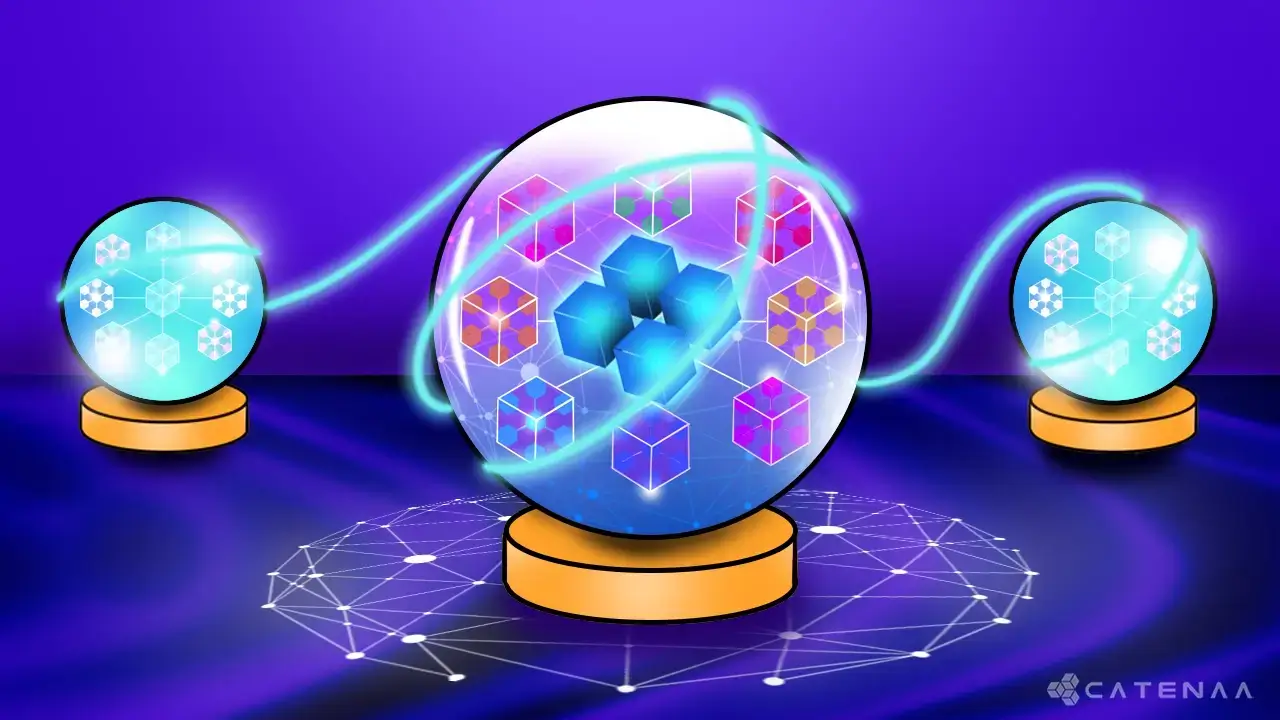Table of Content
- How the DAO Revolution is Transforming Businesses & Society
- Introduction
- Why should we use DAOs?
- How do DAOs work?
- How are DAOs redefining the world? And why should we care about it?
- Some well-known DAOs
- What are some of the challenges faced when adopting DAOs?
- Key benefits of DAO
- Looking forward…
- Final thoughts
How the DAO Revolution is Transforming Businesses & Society
Imagine you are part of an organization that has formed a committee with regulations. Everyone came together to create it. A document with the committee’s rules has been established and is accessible to all members. This document about Decentralized Autonomous Organizations stipulates that the ultimate decision-making power lies with the committee. As days pass, you notice that some committee members are not following the rules and are mismanaging the finances.
One day, as you passed by a vending machine with a wide selection of snacks and drinks, you put in your money and made your selection, and within seconds, the snack fell into the tray below. The vending machine operates independently, without the need for human intervention. It’s a simple and efficient way to get what you want. However, the vending machine carries a limited selection of products and cannot know who or where the customers are. Even when the stocks ran out or experienced a problem, a human was needed to troubleshoot and fix the machine.
Now imagine the two situations mentioned above combined but in a distributed manner. Through these two analogies, we attempted to explain two main ideas behind Decentralized Autonomous Organizations (DAOs).
The core premise is that a DAO is not controlled by any entities or authorities; it operates independently and without human intervention. This article will teach you about DAOs, how they work, and their challenges and advantages.
Introduction
DAO, short for Decentralized Autonomous Organization, is a digital entity operating without human intervention. It is administered via code instead of individuals in the traditional way. It operates on a blockchain network, using smart contracts – a self-executable agreement mentioned in code – to facilitate its decision-making process and manage assets.
It is decentralized and autonomous, meaning it operates independently without requiring human intervention. DAOs are based on blockchain technology, the same technology supporting cryptocurrencies like Bitcoin and Ethereum. This technology allows DAOs to be securely run without a centralized authority. DAOs enable trustless transactions between parties without requiring any middlemen.
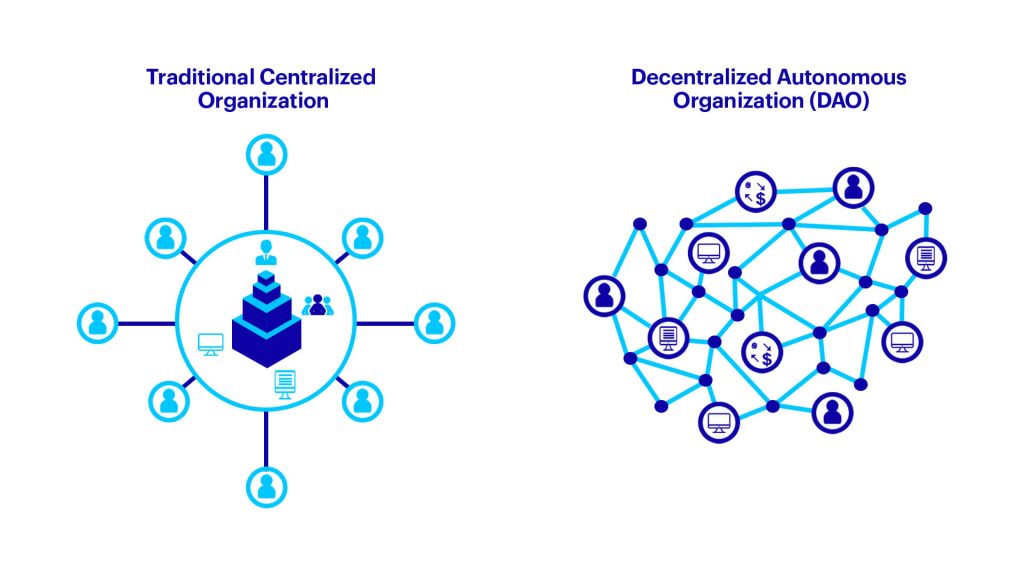
In 2013, “Vitalik Buterin” introduced the idea of a Decentralized Autonomous Organization (DAO). This is an organization governed and managed by blockchain technology, which allows for better transparency and democratization when it comes to decision-making. 1
The Ethereum Foundation mentions that DAOs are,
- Member-owned communities without centralized leadership.
- A safe way to collaborate with unknown parties on the internet.
- A safe place to commit funds to a specific cause.
Why should we use Decentralized Autonomous Organizations?
As we stated above in the analogy, what if we form a traditional organization and keep our trust in them without knowing what they’re doing? And why should we trust them?
This is where DAOs come in. Everyone in the network who contributes to it has an equal say in decisions. This transparency promotes trust among the members.
This revolutionary technology has already begun to reshape businesses, and its potential applications are virtually limitless.
For a better understanding, here is a comparison between DAOs and traditional organizations.
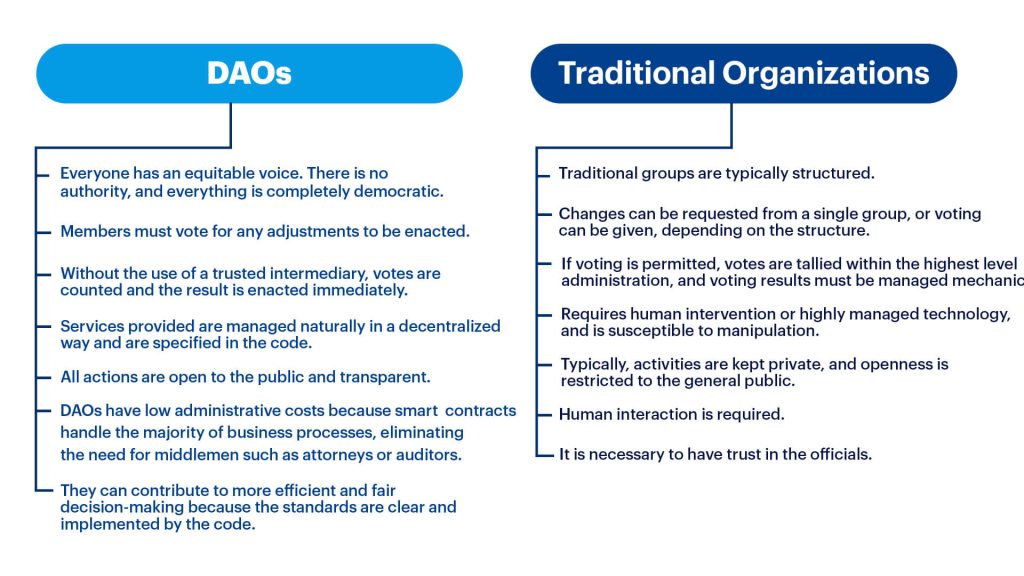
How do Decentralized Autonomous Organizations work?
Smart contracts are the backbone of a DAO. This enables the automation of business processes, governance, and decision-making. Since the smart contract runs on the blockchain, all the rules are transparent, and all members can see how decisions are made. A collective set of members owning the organization can participate, and ownership can be obtained by securing the governance token of the network.
Creating a DAO begins by writing a set of smart contracts that define the organization’s rules and functionality. These contracts include the total number of tokens that will be created, the voting process, and how disputes will be handled. Once the smart contract is written, it is deployed to the blockchain, and anyone can become a member of the DAO by purchasing tokens that give them voting rights.
Components of a Decentralized Autonomous Organizations
Usually, the components are,
- Exchange
- Validator
- User
- Developer
Launching a DAO
First, developers create smart contracts and double-check the overall process and rules set by these contracts through the governance system.
Then, a funding round is needed to determine how users can obtain voting rights. Typically, this is done by offering a token sale.
Once everything is set up at the ground level, the DAO will be deployed to the blockchain. From this point forward, developers and creators will not be able to influence the project any more than other stakeholders.
Post-launch,
Once a DAO is up and running, members can propose and vote on decisions that will affect the organization. Examples of decisions that can be made include allocating funds, which projects to work on, and how to handle disputes.
The decision-making process in a DAO is done through voting. The smart contract automates the voting process, so it is transparent and tamper-proof. The smart contract also enforces the rules, so if a proposal passes, it will automatically be executed by the contract.
Since the smart contract is deployed on a public blockchain, all the rules, proposals, and voting processes are transparent, and all members can see how decisions are made. This promotes trust among members and helps prevent data manipulation.
How are DAOs redefining the world? And why should we care about it?
DAOs are the economic entities of the WEB 3.0 space. DeFi projects always need a DAO to govern them. It promises new forms of structure for business organizations in the digital space. In the early days of crypto, it was just another fancy term, but quick adoption and many successful projects have proved its importance.
Here are some ways that DAOs are currently used:
- Venture/ Investment DAOs pool users’ assets and collectively decide how and where to invest them.
- Protocol DAOs are the primarily used type that governs and facilitates the existing decentralized protocols.
- Social DAOs are also common; their entire purpose is to gather people with the same interests.
- Collector DAOs are used to acquire NFTs and other digital assets which might be too expensive for one individual to purchase. Participants of the DAO will pool their money and buy the NFTs as per their choices.
Some well-known Decentralized Autonomous Organizations
As we discussed, DAOs can serve a wide range of purposes. When we look at some of the successful projects in this space, we can understand what role DAOs played. For example, Axie Infinity is a Vietnamese play-to-earn game that made USD 1 billion in revenue in 2022. With the reward-sharing mechanism on their platform, users also made money based on their gaming activity.
Uniswap DAO is also one of the popular decentralized crypto exchanges globally, built on the Ethereum blockchain. It started operations in 2020 and functions as the topmost decentralized exchange, offering thousands of tradable pairs. Moreover, anyone can become a member by holding their native taken “UNI,” which gives its users the authorization to vote and allows investors to swap ERC-20 tokens easily without the need for any intermediary to facilitate the transactions.
DAO maker aimed to be the most significant growth solutions provider for new startups in the crypto space.
Decentraland is another commonly known project for its popularity since some big brands like Morgan Stanley, Adidas, and Coca-Cola started partnering with them. It’s basically a virtual world governed by the token “MANA.”
BitDAO is one of the largest decentralized organizations, backed by PayPal founder Peter Thiel, aiming at a decentralized economy. It allows participants to stake in WEB 3 and De-Fi startups and initiatives.
AAVE also did great things by serving as a lending protocol. Through this platform, borrowers and lenders can interact without needing a centralized aggregator. As a result, it revolutionized the P2P lending industry. It was initially hosted on Ethereum, and later due to its popularity, it integrated with other platforms.
Altogether, this unique structure offers several benefits that are changing the way businesses operate, including decentralized decision-making, automated operations, transparency, and the potential for De-Fi.
What are some of the challenges faced when adopting DAOs?
Investors and entrepreneurs are in the early stages of exploring DAOs, as many adoption hurdles exist. Let us look at a few of them down below,
- Legal and regulatory uncertainty: DAOs operate in a legal gray area and can face regulatory scrutiny.
- Governance and decision-making: DAOs require effective decision-making, voting, and dispute resolution mechanisms.
- Technical complexity: Implementing and managing DAOs can be complex, requiring specialized knowledge of blockchain technology and smart contract programming.
- Security risks: DAOs can be vulnerable to hacks, exploits, and other security threats.
- Participation and engagement: To be effective, DAOs require active participation and engagement from members, which can be challenging to achieve.
- Scalability: DAOs can face scalability challenges as they grow in size and complexity.
- Community management: DAOs rely on the strength of their communities, which can be difficult to manage and maintain over time.
Key benefits of Decentralized Autonomous Organizations
We have already seen the potential advantages of DAO over traditional organizations in vast fields, starting from finance, education, and even gaming.
- Decentralization and Transparency
This refers to the ability of all users to access and view the information stored on the blockchain. This is achieved using distributed ledgers, where copies of the ledger are stored on multiple computers, ensuring no single failure point exists.
- Automation
This can be done through smart contracts. Since they are self-executable, they can do the tasks under predefined conditions. We can automate business processes, governance, and decision-making by utilizing them. This can lead to more efficient and fair decision-making, as the rules are transparent and enforced by the code.
- Minimal overhead
Since they are decentralized, there is no need for legal or business bodies to be involved in the operations. Smart contracts can execute most of the processes in a predefined setting.
Looking forward…
The future of DAOs is not entirely clear, but it has the potential to significantly change traditional approaches. As the technology and understanding around DAOs evolve, we will likely see more organizations adopt this model, from non-profit to for-profit.
DAOs can be used to create decentralized supply chain networks, which provide transparency and traceability throughout the supply chain. They can also play a significant role in the DeFi sector, as with the help of DAO, lending, and even insurance products can be delivered to the end-user. As this technology grows, governments may also provide much-needed legal and regulatory frameworks.
However, it is essential to note that despite all the potential benefits, DAOs are still in the early stages of development and may face significant challenges regarding scalability, security, and user adoption. Additionally, the current lack of legal and regulatory framework may prove to be a substantial obstacle in the short term.
Final thoughts
In summary, Decentralized Autonomous Organizations (DAOs) represent a fascinating advancement in digital organizations. They bring forth an innovative decision-making approach characterized by transparency and democracy. Additionally, DAOs have the potential to operate with minimal overhead costs, which further enhances their appeal. However, many challenges still need to be overcome, including the absence of a legal and regulatory framework and the vulnerability to hacking. Nevertheless, with the ever-evolving technology and better understanding of DAOs, it will be intriguing to see how they will shape the future economy and influence organizational operations.
- An article wrote by Vitalik about DAOs back in 2013: https://bitcoinmagazine.com/technical[↩]
